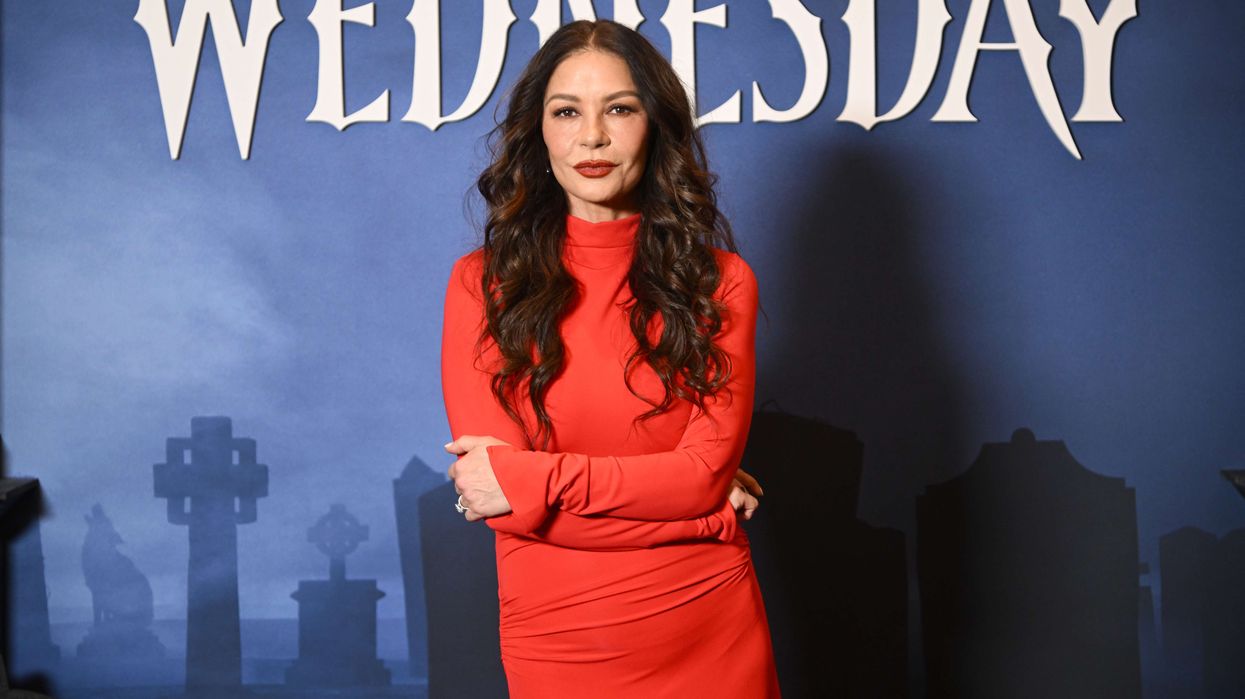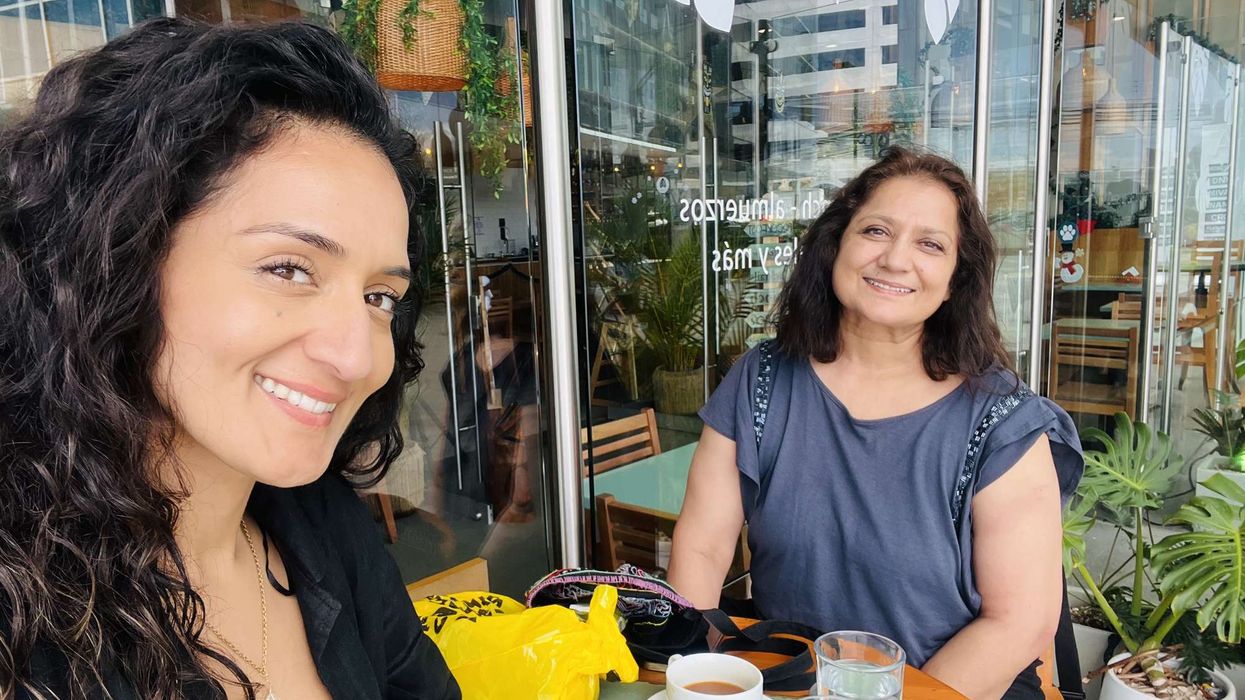IT’S been a little more than a year since British-Indian business executive Leena Nair took charge of luxury fashion house Chanel, becoming the first female as well as person of colour CEO in the 112-year-old French luxury house.
Owing to her 30-year-long stunt at Unilever, Nair is well-known for her expertise and sharp eye in making places diverse and inclusive. So, when Chanel announced its decision to appoint Nair as CEO in December 2021, the move was praised as a landmark not only for the fashion house but for the whole industry with some even stating that the fashion house was on its way to shedding its Eurocentric approach.
The appointment is almost a statement to the world to prove how serious Chanel is about diversity. The company boasts of global revenues of a whopping £8 billion, majorly due to the massive popularity of iconic brands like Chanel No5. With an Asian handling the realms at the top, Chanel reportedly aims to focus on emerging cash-rich pockets in Asia and elsewhere, as well as broaden its offering through collaborations and acquisitions.
In a LinkedIn post that Nair shared in early January this year, she revealed more about her experience at Chanel, saying she visited “25 regional offices, 40 manufacturing locations and heritage sites, 100 points of sale, and every creation studio” over the year, thereby immersing herself in the company.
“Nothing prepared me for how deeply and how beautifully creation lies at the heart of Chanel. The freedom of creation – its craft, quality, and the commitment to nurturing a one-hundred-year dream – is what unites every team and métier and brings our products to life. I have always believed in the transformative power of creation, which brings joy and inspires us all,” wrote the 52-year-old CEO.
Nair’s appointment, however, was received with surprise as she had no prior exposure to the fashion industry before. Although lately, top execs switching from consumer goods into the luxury market is not completely unheard of- be it Antonio Belloni, a Procter & Gamble (P&G) veteran, who was poached by LVMH in 2001 or Fabrizio Freda, another P&G executive, who was picked to run Estée Lauder in 2009.
Nair might be one of the most-talked about CEOs in 2022, though technically (and surprisingly), it is only her second job. For 30 years, she was with consumer behemoth Unilever- a company that she joined as a management trainee and left as Chief of Human Resources.
Nair’s life arc is remarkable and seems straight out of a motivational book.
She comes from a rather conservative community in Kolhapur in Maharashtra - a western state in India - where women were educated only to a certain level before being traditionally married off. In her interviews, she has often touched upon how the small-town culture where she spent her early years wasn’t conducive to women harbouring big dreams, particularly big corporate dreams.
Her family however supported her decision to pursue Engineering, more so after seeing her love for Maths, Physics, and Chemistry. However, she soon realised that this was not her calling.
It was one of her professors at the engineering college, whom she also considers her mentor, who encouraged her to consider human resource as her core work area.
Here, her father needed to be convinced as he saw no point in switching fields. Also, her MBA college was 48 hours-train-journey away from her home. However, she was determined to take this up and joined India’s oldest and prestigious business school XLRI- a move that ultimately decided the course of her career and overall life.
Years spent in XLRI in Jamshedpur in eastern India proved to be crucial in shaping her outlook as well because this was the first time that she had ventured out of her comfort bubble.
In her words, for the first time, she was in an environment that was creative, democratic, and liberating. She reportedly credits her liberal worldview to endless discussions she used to have in the college with fellow students and teachers on politics, philosophy, and human relationships.
Nair joined Unilever in 1992 as management trainee. Her early days in Unilever were spent on the factory floor at various Unilever’s factories in India and doing night shifts - both otherwise male domains. In an interview, she revealed how in those factories, there was never a washroom for ladies because nobody had imagined a woman would come to their factory, so her first job would always be to ensure that a female toilet got installed.
In 1996, she was appointed as Employee Relations Manager and elevated as Human Resource (HR) manager by 2000.
Navigating her way upward in the corporate ladder, she landed her first leadership role in 2006 as general manager HR as well as Foods and Head of Management Development, where while reporting directly to CEO, she created a model for building capability that is now used company-wide.
In the following years, she was promoted and eventually became the first woman on the Unilever South Asia leadership team. In this role, Nair was credited with embedding performance culture as a way of life for Unilever, thereby improving productivity levels by 33 per cent within two years.
Flash forward six years, Nair became Global SVP Leadership and Organisation Development and Global Head of Diversity and Inclusion, where she was instrumental in driving the company’s employer brand to a record heights, along with advancing the diversity agenda. She also spearheaded the creation of a world-class leadership centre in Singapore.
It was in 2016 when Nair landed the top HR job at Unilever. Relocating to London in 2016, she took the company’s global HR reins as Chief Human Resource Officer (CHRO) of Unilever. In this role, she was responsible for about 150,000 people in more than 100 countries. During this time, she was also leading the Diversity and Inclusion agenda for its workforce.
For a better part of her tenure at Unilever, her responsibilities included employee relations, workplace diversity and organisational development. Humility and empathy are attributes she is said to wear on her sleeve.
She also reportedly played a critical role in the building of Unilever into a purpose-led, future-fit organisation, one that has now become the employer of choice in more than 50 countries worldwide.
Nair is known for running many pioneering agendas with bold new social commitments, including recent pledges to pay the living wage across its entire supply chain by 2030 and equip 10 million young people with essential skills by 2030.
She also pioneered the four-day week pilot programme currently being explored in New Zealand, instigated the U-Work program (there?) - which joins the flexibility of contract work with the security and benefits of an in-house role and initiated U-Renew- a paid learning sabbatical programme to help workers upskill.
As Unilever CEO Alan Jope said when her departure from the company was announced, Nair has been a “pioneer throughout her career at Unilever, but no more so than in her role as CHRO, where she has been a driving force on our equity, diversity and inclusion agenda, on the transformation of our leadership development, and on our preparedness for the future of work”.
Nair is an active voice on social media, so much that she has been recognised among the top voices of LinkedIn. In 2017, she was recognised by HRH Queen Elizabeth II who acknowledged her as one of the most accomplished Indian business leaders in the UK. While she considers Indra Nooyi, former PepsiCo CEO her role model, it is evident that she is no lesser a role-model herself.HUL Is this Hindustan-Unilever – shouldn’t it be just HL?
Being first in her line of work is something that always been attached to her in some way or the other. Along with being the first female, first Asian and youngest ever CHRO of Unilever, she has been the first female in nearly all roles she held at the consumer goods giant over the last three decades – including the first female manager to opt for a factory stint and the first woman in Unilever’s Management Committee in 90 years.
Nair, who as a woman experienced being in minority right from her engineering college as well as on the factory floor during her early days at HUL, is however always ready to challenge injustice at work.
“I have empathy for anyone who feels marginalised. I take it personally,” she noted in a LinkedIN post.
Going by her track record and work achievements, Nair certainly seems a woman of her words. When she joined Unilever as a management trainee in the early 90s, only two per cent of its employees were women. Before she left, Unilever announced it was gender-balanced across its management globally - achieving a 50-50 gender balance across its global leadership.
She was also a non-executive board member at telecom company BT and a steering committee member of the World Economic Forum. She is a trustee for the Leverhulme Trust. She has also previously served in the British government’s Business, Energy, and Industrial strategy Department as a non-executive director. In her words, her purpose is to “ignite the human spark for a better business and better world”.
A persona with such far and wide experience at literally every level of corporate world is life lesson in itself. However, it was the fateful night of 26/11in Mumbai and her close encounter with death that ended up giving her the biggest leadership lesson.
On that day in 2008, when terrorists attacked the Taj Hotel in Mumbai, Nair was present in the hotel along with some senior members of Unilever and her spouse. In multiple interviews as well as on her social media handles, she often recalls the conduct of one particular young female staff of Taj Group (far younger than anyone in the Unilever team of 30) who was with them throughout the night - all the while maintaining her poise, ensuring everyone’s safety and keeping her instincts kicking.
When the group finally managed to escape after spending a whole night hiding in smoke-filled rooms, the Taj employee made sure everyone was safe and was the last one to leave.
“I’m sure nothing in her training had ever taught her what to do when terrorists attack, but she rose to the occasion.
“It doesn’t matter what age you are or what position you are, it’s in the moment, how you show leadership, how you bring everything you’ve got to making an impact. That’s what makes the difference,” Nair wrote in a LinkedIn post.
Under Nair’s vision and leadership, Chanel is set to reach greater heights, tapping beyond Europe into Chinese and other global luxury fashion markets. The path has its own set of challenges like making the business more sustainable and more ‘inclusive’ by changing the rigid norms of what beauty means while pulling the century-old brand out of any post-Covid slowdown.
With her latest role in Chanel, Nair has instantly joined the elite club of top Indian CEOs of global companies including former PepsiCo chief Indra Nooyi and Google’s Sundar Pichai. She operates from London rather than Chanel’s headquarters in Paris.
Her appointment at Chanel is not only a big leg-up for all the aspiring women leaders but it is also a major thrust to the HR function, bringing an experienced professional to the forefront in a prominent leadership role.
From growing up having lots of norms and barriers around her over what girls can do and can’t do to going where few women dared at her time in Unilever to surviving the 26/11 terror attack at the Taj Hotel in Mumbai to heading a global luxury fashion giant, Nair’s life is what dreams are made of.








